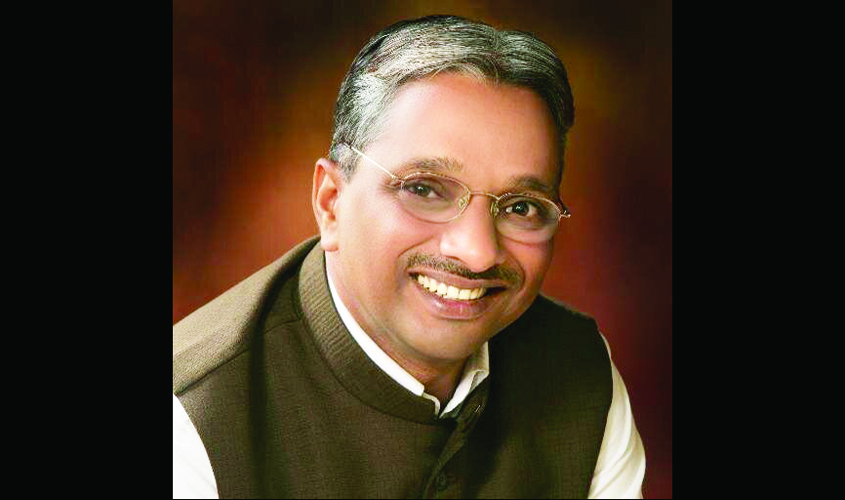Q: How do you see the more than a three-and-a-half years of performance by the Union government when it comes to economic policies?
A: We do not analyse government policies. The issues at hand are the same, like they were in the past. The issue is the economic policy model being adopted in India, which is not suiting the country. So a paradigm shift is needed. We need to bring human interest into the centre of the policy and since this is not happening, poverty is still there and both poverty and unemployment are increasing…We need an agro based economy. That is not happening.
Q: Are you saying that the priority of the Ministry of Finance is not where it should be?
A: When parties are in opposition, they talk differently, when in power, they talk differently. The priority of politicians is very different; it is based on electoral reasons. Since May 2014, more than 15 Assembly elections have taken place, so their policy is dependent on electoral reasons, because of which substantive decision-making is not taking place.
Q: BMS has been critical of “Harvard educated” economic advisors. Who are these people and why are you critical about them?
A: Political appointments are changing every five years but the real government (bureaucrats) remains there. Why is “Gareebi Hatao” slogan still relevant? The bureaucrats are to be blamed for that. Those who were responsible for the execution of the policy made by the party in power, failed, i.e., the bureaucrats. The same bureaucrats who were in the earlier government, they still remain there. Execution is not happening; the bureaucrats must be held responsible. The government has come up with fantastic policies, but the results are not showing because the bureaucrats are not doing their job. The BMS wants bureaucratic reforms. We need specialists. How can you expect the same bureaucrat to be an expert in the field of agriculture and defence and science? How can you assume that the bureaucrats are the masters of all? It is because of this lack of professionalism on the part of the bureaucrats that nothing much has changed in the last 70 years. 101%, the bureaucrats are responsible. An expert on farm has never seen a farm. What will he advise? In Europe, many countries have a population lower than some of our districts. How can these Harvard educated experts help? India is a different country; bookish knowledge does not work here. The advisors have never seen reality. BMS is asking for the involvement of stakeholders in policymaking.
Q: But the government is devising policies on the basis of what these experts tell them.
A: BMS does not doubt their talent, but we want that policies should be made while involving stakeholders. We cannot have readymade ideas and policies that are not customised to our local needs. NITI Aayog is also a body to advice and it needs to take the stakeholders along. Simply changing the name of Planning Commission to NITI Aayog will not lead to miracles or delivery. The process, mechanism needs to be changed. Who is in policymaking? All academicians. They do not know the ground realities, the facts of this country. The bureaucrats, advisors should be held accountable. Ultimately, it is the executor responsible for the policies working or not. We cannot be dependent on IAS officers for everything, we need professionals.
Q: What are BMS’ views on demonetisation? Well thought out, badly executed?
A: Both GST and demonetisation were bold decisions of the government, a paradigm shift. The results of this will come out gradually. Initially, there were lots of issues that have decreased now. The informal sector has 93% labour, and they have benefited due to demonetisation as they have been enrolled in the Provident Fund scheme, post demonetisation. 1.16 crore from the informal sector have been enrolled in the PF scheme. This is a good thing as far as BMS is concerned.
Q: But so many people lost their jobs in the informal sector due to demonetisation.
A: It is not a permanent loss. Because of demonetisation and the ensuing policies, more labour have been formalised. Closed businesses are reopening and people who lost their jobs are getting new jobs with additional benefits like PF. We at BMS feel that concluding right now whether demonetisation and GST are right or wrong, is too early. We are counting both pluses and minuses. GST will help decrease the gap between the rich and the poor, which is increasing. More tax reforms are needed. Hasmukh Adhia has already said that they are ready to address the concerns arising out of GST. We are not endorsing it completely, we are waiting.
Q: BJP is in power right now, BMS is an organ of RSS. Are the suggestions of BMS taken up by the government?
A: It is not that the BMS thinks that since there is a BJP government, so the policies suggested by BMS should be implemented. We are working since 1955 and had submitted an exhaustive charter in 1967 and have been following it up on since then, regardless of the government at the Centre. We expect things from every government; the government is ours regardless of whichever party is there. But we feel that economic policies need a paradigm shift. Nationalism is rising everywhere, like in US, like the decision of Britain to exit the EU. Globalisation is not serving the interest of the common citizen but a select few.
Q: Can we say that the BMS is disappointed in the government?
A: I cannot say disappointed because that would mean that we have lost all hope. We have not lost hope. At many fronts this government is working more actively and vigorously (that earlier governments), hence we have not lost hope. Changing policy takes time. We are hopeful.

